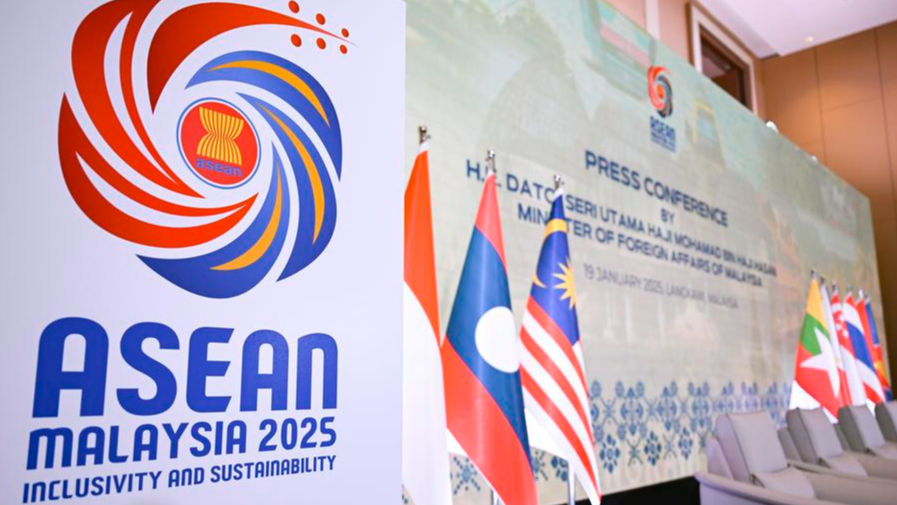
The Association of Southeast Asian Nations has raised concerns over rising global uncertainties brought by the "unilateral actions relating to tariffs".
In a communique issued on Friday at the conclusion of the 58th ASEAN Foreign Ministers' Meeting, the regional bloc said the imposition of the tariffs is counterproductive, may exacerbate global economic fragmentation and poses complex challenges to regional stability and growth.
"We underscored the importance of a predictable, transparent, inclusive, free, fair, sustainable and rules-based multilateral trading system, with the World Trade Organization at its core," the foreign ministers said in their joint statement.
The communique didn't specifically mention the United States. But the Trump administration's threat to raise tariffs by as much as 50 percent has been a cloud over the four-day foreign ministers' meeting in the Malaysian capital city of Kuala Lumpur.
ALSO READ: Asian economies brace for fresh tariff wave
ASEAN, which is among the world's fastest-growing regional economies, relies heavily on trade and considers the US among its biggest clients. Analysts said the US tariff threats are pressuring the region's economic outlook.
'Economic coercion'
Wilson Lee Flores, a Manila-based entrepreneur and analyst, said ASEAN must oppose "economic coercion" by highlighting how these tariffs harm both ASEAN exporters and US consumers.
He said ASEAN must respond with unity and strategy. These include using WTO dispute mechanisms to challenge the tariffs' legality and expanding economic partnerships with China, the European Union and emerging markets to reduce dependency on the US.
For John Paolo Rivera, a senior research fellow at the Philippine Institute for Development Studies, the tariffs' impact may be uneven as some ASEAN countries were threatened with higher tariffs than the others.
Rivera cited the Philippines, which is facing a 20 percent tariff, has a lower rate compared with its peers. But he said this doesn't mean the Philippines will be spared from the impact of higher tariffs.
"Tariff risks undermine our export competitiveness," Rivera told China Daily.
ALSO READ: Wang Yi: ASEAN Plus Three countries should continue to advance regional integration
Victor Lim, president of the Federation of Filipino Chinese Chambers of Commerce and Industry, said the US tariffs "violate fundamental WTO principles of non-discrimination and fair trade".
Lim said in a statement that the latest tariff threats of the US may disrupt supply chains, harm businesses and consumers and set dangerous precedents for economic fragmentation.
ASEAN foreign ministers said in their joint statement that they will "work constructively" with their external partners, citing that the bloc's economic ministers have also met with their counterparts in China, Australia, Japan and New Zealand to discuss regional and global economic developments.


